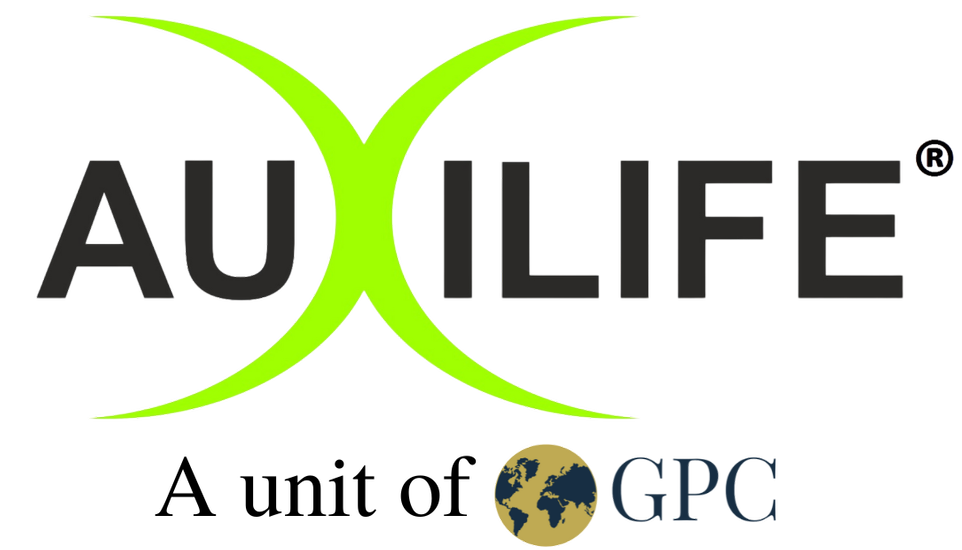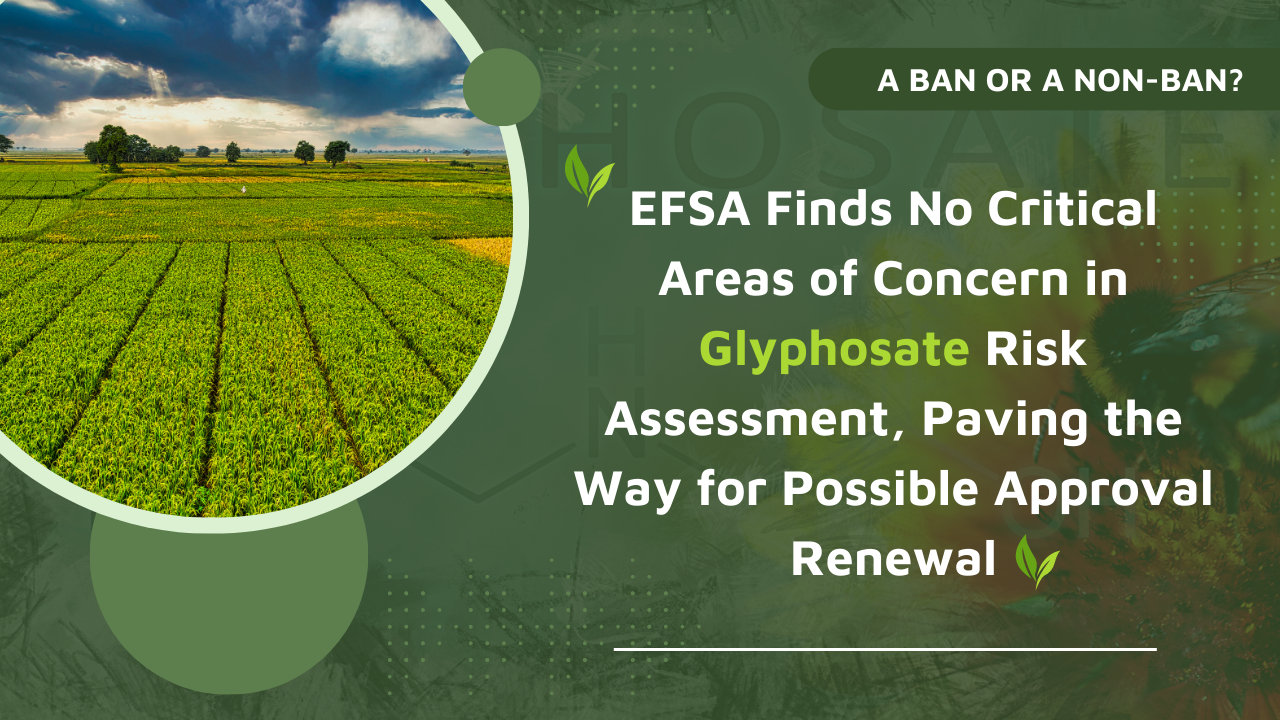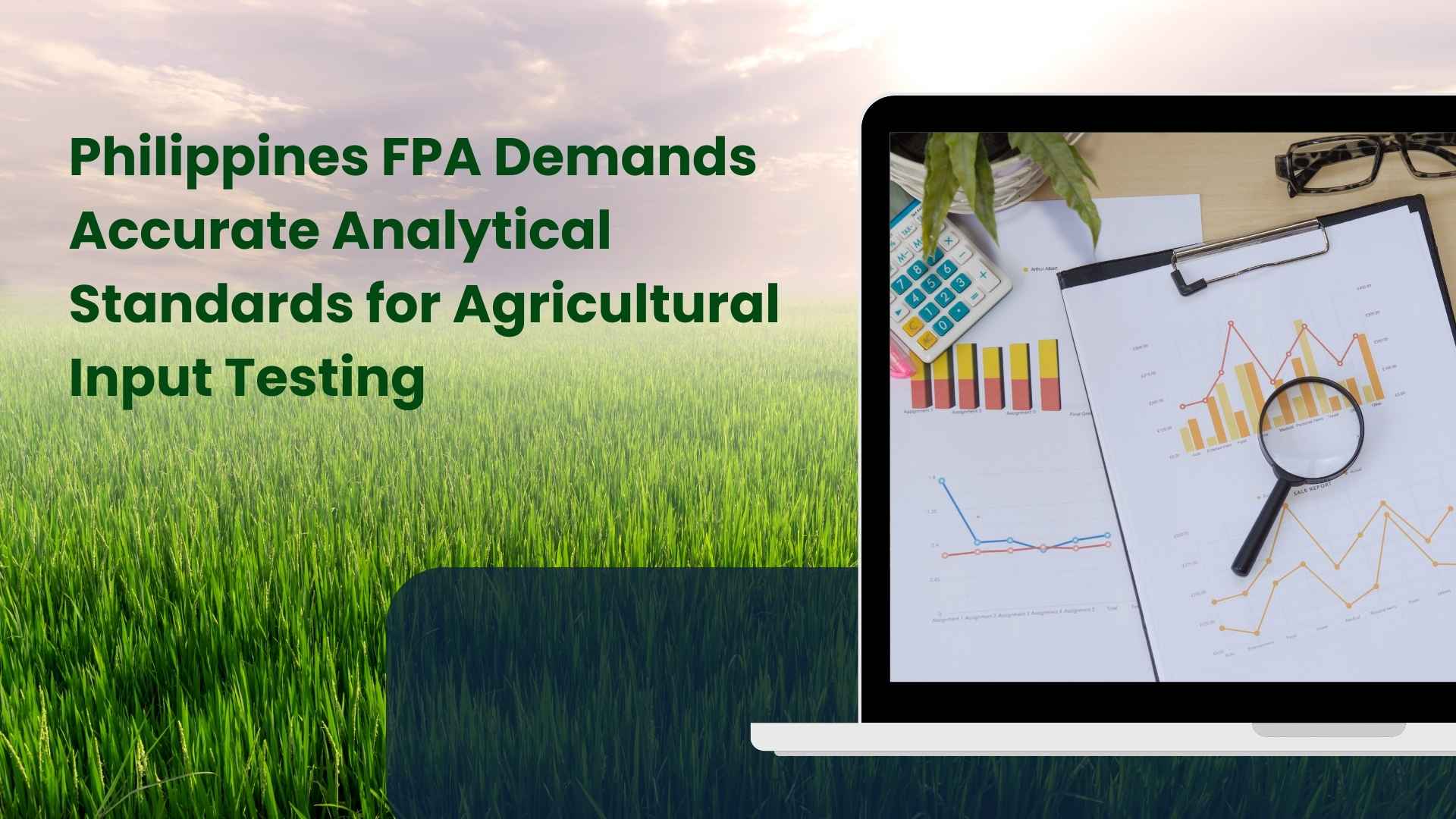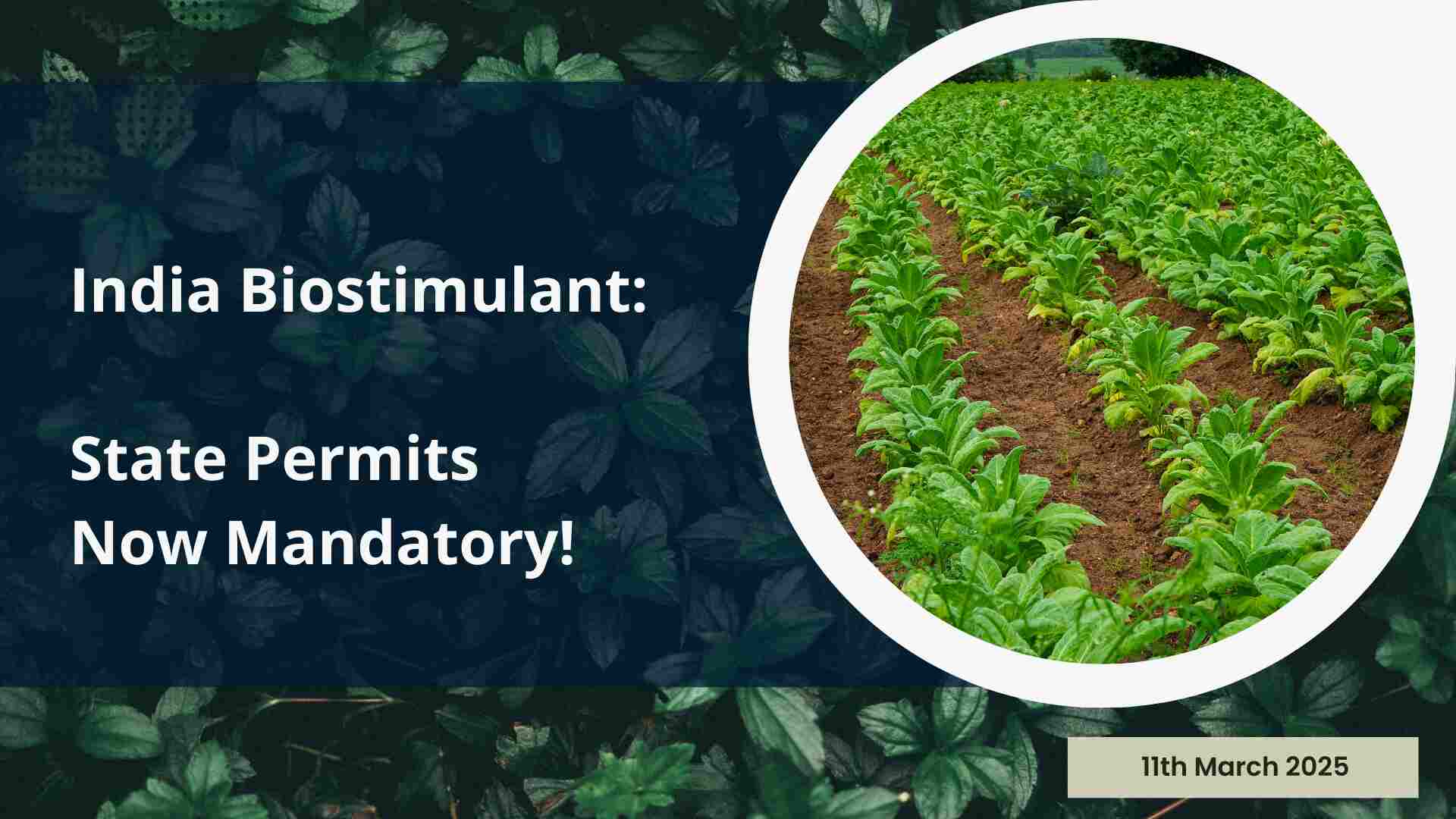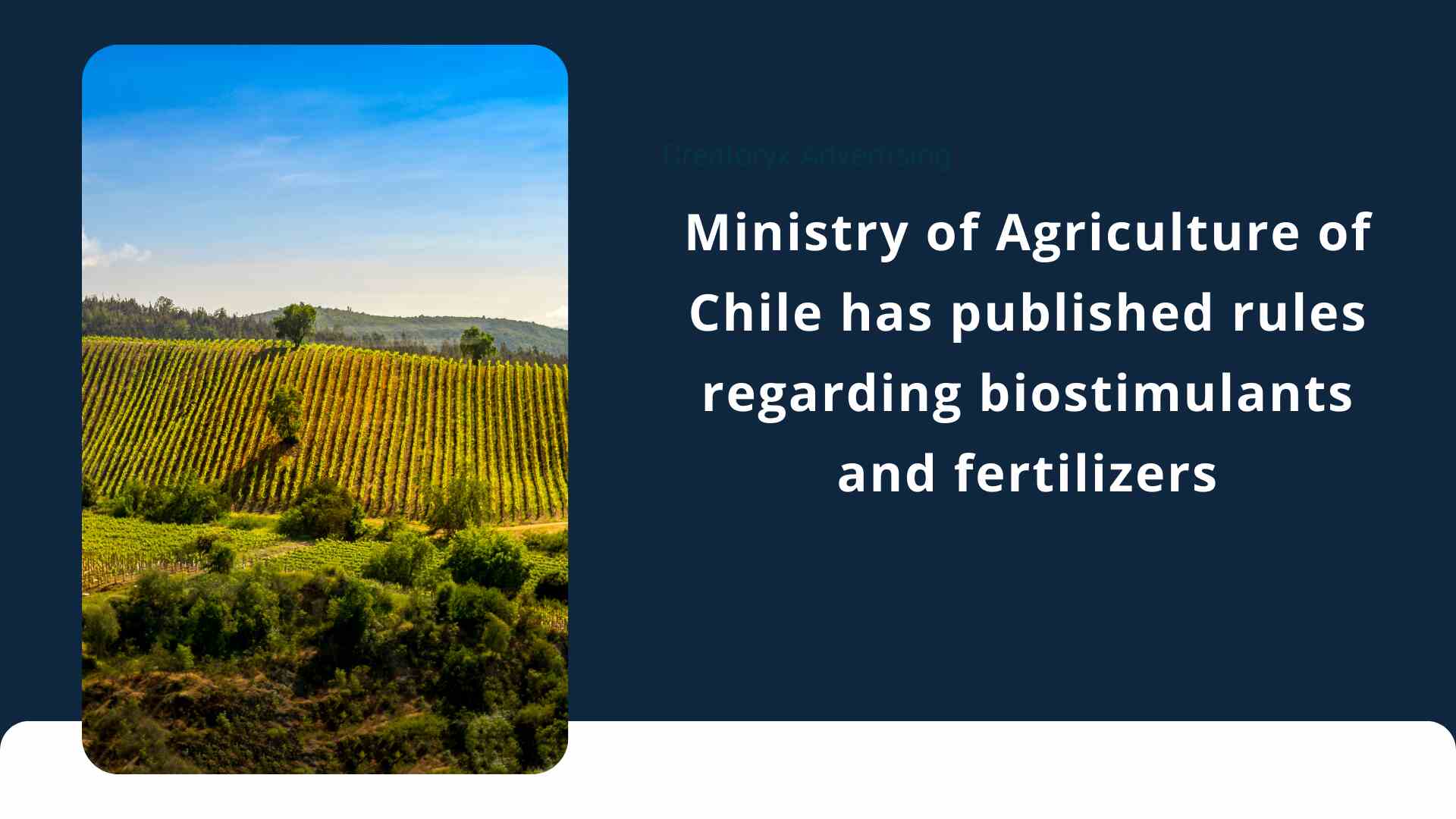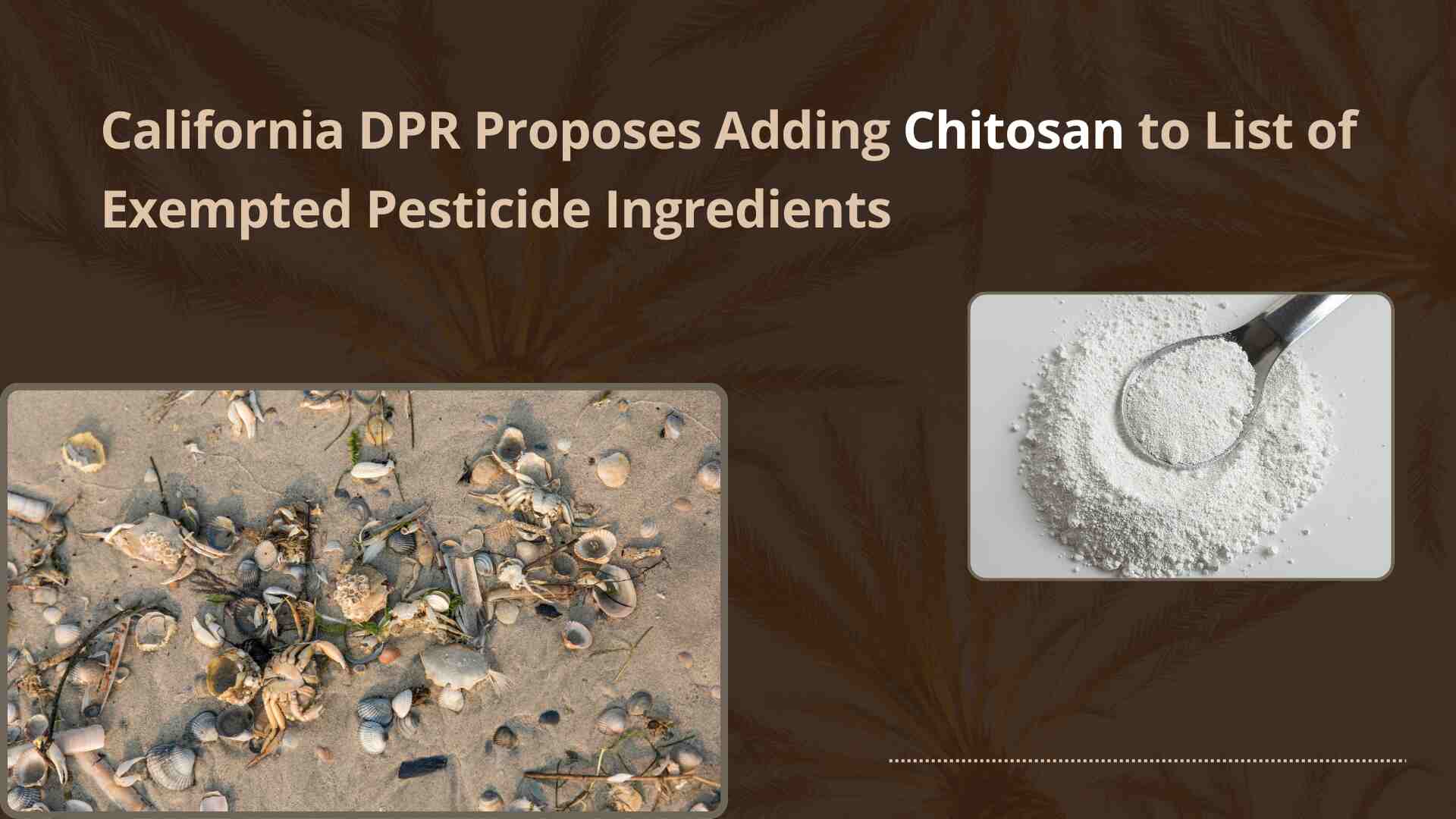In a groundbreaking development, the European Food Safety Authority (EFSA) has announced that it did not identify any critical areas of concern in its recent peer review of the glyphosate risk assessment an active substance commonly used in herbicides. This assessment pertains to the potential risk glyphosate poses to humans, animals, and the environment.
The EFSA’s findings are reinforced by the European Chemicals Agency (ECHA), which conducted a hazard assessment of glyphosate in 2022 and determined that it does not meet the scientific criteria to be classified as a carcinogenic, mutagenic, or reprotoxic substance.
As a result of having such a great deal of data, EFSA and other EU members assessed Glyphosate’s risks and peer reviews
Reviewing period – 32 Months (December 2019 to July 2023)
National authorities involved – 27
Experts appointed by EU member state authorities – 90
Total number of assessed studies – 2,400
Dossier – 1,80,000 Pages
Entries received from public consultation – 400
The data assessment resulted in the following conclusion
- A concern is defined as critical when it affects all proposed uses of the pesticide under evaluation (e.g., pre-sowing services, post-harvest uses, etc.), thus preventing its approval or renewal.
- In 2022, the European Chemicals Agency (ECHA) carried out a hazard assessment of glyphosate. It concluded that it did not meet the scientific criteria to be classified as a carcinogenic, mutagenic or reprotoxic substance. EFSA used ECHAs hazard classification for the purposes of the EU glyphosate risk assessment
- With respect to ecotoxicology, the data package allowed a conservative risk assessment approach, which identified a high long-term risk to mammals in 12 out of 23 proposed uses of glyphosate.
Issue under discussion
- The assessment of one of the impurities in glyphosate could not be finalised without further information about its clastogenic potential i e. potential to cause DNA breakages]. The presence of impurities can be influenced by the manufacturing process.
- The consumer dietary risk assessment could not be finalised due to incomplete data about the amount of glyphosate residues in rotational crops such as carrots, lettuce and wheat. However, this is not expected to lead to an exceedance of toxicological safety levels and so no critical concern was identified.
- The assessment of risks for aquatic plants could not be finalised due to a lack of data about their exposure to glyphosate via spray drift.
Future Insights
EFSA is expected to publish its conclusions, as well as the extensive background documents related to the peer review and risk assessment, on its website by the end of July 2023. The comprehensive background documents, spanning thousands of pages, are anticipated to be available between the end of August and mid-October 2023.
